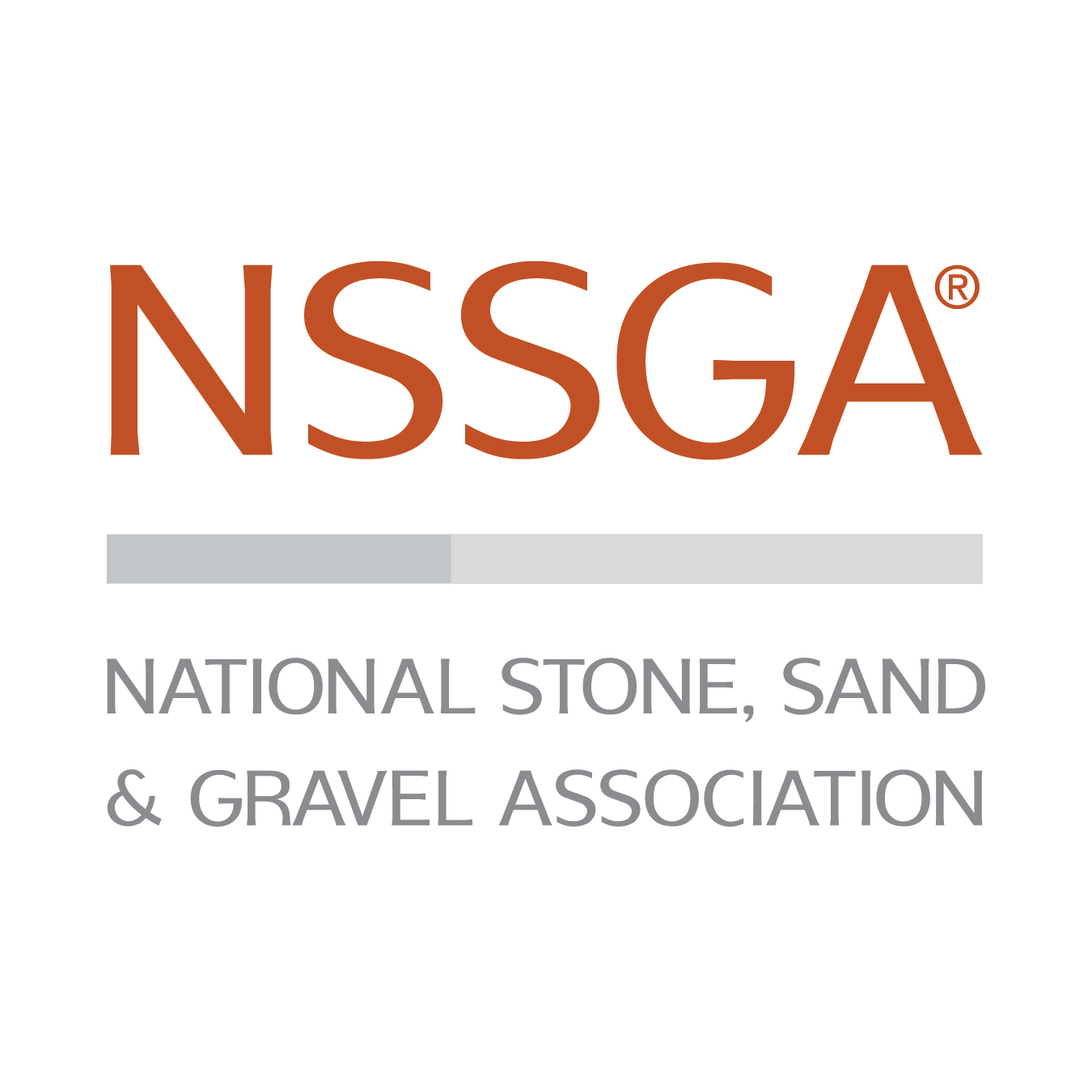Hill Day 2024: On the Issues

NSSGA, NAPA and NRMCA are joining forces on September 26 for Hill Day to share industry priorities with elected officials and policymakers. Together, our voice is stronger. Together, we achieve more. Together we build!
Click below for our flyers on industry issues. We will leave these flyers with members of Congress during Hill Day meetings.
Addressing Infrastructure Challenges
The Infrastructure Investment and Jobs Act (IIJA) of 2021 took a historic step in addressing our nation’s infrastructure challenges. However, there are still notable areas where Congress must act to ensure America does not fall further behind. The next surface transportation legislation must be considered before Sept. 2026, when IIJA expires. Therefore, the 119th Congress will be responsible for building on IIJA’s success. The next transportation bill should ensure we have the necessary resources to keep our nation’s transportation and infrastructure network competitive with our adversaries, grow our economy and keep America moving safely and efficiently. Below are key issues the construction materials industry continues to support:
Sensible Infrastructure Investment that Keeps America Competitive: While IIJA represented a substantial “down payment” for the nation’s transportation network, continued investment is needed to ensure the United States stays competitive with our foreign adversaries, like China, who leads the world in infrastructure spending related to GDP. When IIJA expires in Sept. 2026, Congress must swiftly move towards consideration of the next surface transportation reauthorization and send a strong message to nations worldwide that the U.S. can unite to improve our outdated systems, grow our economy and stay competitive on the world stage.
Highway Trust Fund Solvency: While we applaud Congress for providing five more years of solvency for the Highway Trust Fund (HTF) in IIJA, Congress must look beyond that timeframe to ensure long-term solvency. The next surface transportation reauthorization bill must incorporate visionary and evolutionary revenue increases to avoid a devastating shortfall. We support sustainable revenue sources to adequately fund needed investments and create financial certainty, including vehicle-miles-traveled (VMTs), bonding measures, registration fees for electric vehicles, national registration fees and the raising and indexing of the federal gas tax, which has been unchanged for nearly 30 years. As discussions about the HTF unfold, we support consideration of all potential funding methods. It’s crucial to explore sustainable and stable funding sources while explicitly avoiding reliance on yearly appropriations, which could jeopardize the consistency and effectiveness of infrastructure investments.
Maintain Support for Highways: Highways are the lifeblood of America, providing the means for transportation of people, goods, services, and medicine to rural and urban communities. Highways must continue to receive the dedicated investments needed to advance projects that increase vital access, reduce congestion and improve the lives of all Americans. We support the continued utilization of the long-standing and proven 80-20 revenue ratio for highway and transit investments out of the HTF.
Construction Materials Exemption from Federal Buy America Requirements: IIJA provided historic federal investment into existing and new programs to improve infrastructure across the country. One of the key policy changes made under IIJA was the creation of new federal Build America Buy America (BABA) sourcing requirements, which include the addition of “construction materials” to Buy America preferences across federal infrastructure programs. The construction materials industry strongly supports the goals of Congress and the administration to improve our outdated infrastructure expeditiously. The next surface reauthorization bill must not impose any sourcing requirements or paperwork burdens on cement, aggregates and asphalt additives and binder. This will ensure maximum project delivery and American job creation.
Improve Work Zone Safety: Congress must help protect the hard-working men and women that maintain, improve and construct the work zones within our surface transportation network every day. Our colleagues are running the heavy equipment, laying down or removing pavement material and establishing the barriers, signs and flaggers who keep workers and the motoring public safe. Unfortunately, work zone incidents and fatalities have been rising, with almost 100,000 work zone crashes leading to over 35,000 injuries and almost 1,000 deaths annually. We must urge FHWA to engage and report back how IIJA funds via the bipartisan Work Zone Safety Contingency Fund (WZSCF) are being used. We also ask FHWA to champion policies that ensure workers are given the necessary tools to complete their job safely, including: additional funds for relevant safety equipment at work sites, increased technologies and signage for State DOTs and law enforcement to utilize, reconsidering certain work zone activities that occur during increased rush hour, late-night hours and/or single-lane closure.
Creating a Tax Structure That Supports Growth
Several key provisions from the Tax Cuts and Jobs Act of 2017 are scheduled to expire at the end of 2025 without changes from Congress. Policymakers must consider industry feedback, while laying the groundwork for the next tax reform package.
A tax code that encourages investments in infrastructure development and allows families and businesses who operate quarries to create and support high-paying jobs is critical to a growing and sustainable economy. The construction materials industry supports sensible reforms to our tax laws that remove undue burdens and allow for industry innovation and vigorously opposes any provisions that would adversely impact industry operators, including:
Percentage Depletion: The construction materials industry will continue to oppose legislative efforts to repeal the percentage depletion allowance. This important provision, incorporated in the Revenue Code since 1926, incentivizes producers to make new investments by providing a five percent capital cost recovery method for sand, gravel and crushed stone and 14 percent for industrial sand development. Eliminating this provision will inappropriately increase costs for end-users of construction materials, including federal agencies, and discourage investment.
Bonus Depreciation: Construction materials producers invest in heavy equipment and machinery to properly run their quarries. This supports our nation’s manufacturing economy, ensures materials are available and competitively priced and is the basis for increasing jobs. The bonus depreciation allowance began to phase out on Jan. 1, 2023. The construction materials industry supports the permanent expansion of this important tool that provides aggregate operators with the certainty to make necessary capital investments that create jobs and grow our economy.
Research and Development Tax Credit: For almost seven decades, the Revenue Code has acknowledged the significance of research and development by permitting businesses to deduct their entire R&D expenses within the same fiscal year. However, as of the start of 2023, businesses were obligated to spread out or deduct these expenses over an extended period. This change significantly increased the cost of conducting R&D in the United States. Unfortunately, the industry is already experiencing the chilling impact of the R&D deduction limitations, resulting in the loss of high-paying jobs and reduced R&D activities geared toward future innovations. Even more frustrating, the new expensing requirements are disproportionately impacting small businesses, require hard-working taxpayers to cover as high as 200 – 300 percent increases in taxes for this year.
Corporate Tax Rate: Corporate tax rates must remain globally competitive to allow American labor and materials to compete fairly and effectively. We support maintaining the current Corporate Federal Tax Rate of 21 percent, without the burdensome complexity of an additional minimum tax. The construction materials industry also supports efforts to incentivize American manufacturing, which is critical to our economic prosperity.
Small Business Deduction: We support the permanent extension of Section 199A, a 20 percent deduction for qualified business income. Over 80 percent of our members are small producers and family-owned operations that have supplied their local communities with needed materials for generations. Section 199A is scheduled to sunset at the end of 2025. A permanent extension would bring much-needed certainty to small businesses and help further unleash the ingenuity and growth that is powered by small businesses.
Capital Gains Tax: Encouraging risk-taking investments in innovation and infrastructure has always been a hallmark of the U.S. tax system. The current preference for capital gains should be continued without any income phaseout that would disproportionally affect small family businesses like those in the construction materials industry.
Estate Tax: We support a full repeal of the 40 percent federal estate or “death” tax, which is levied on estates valued at greater than $5 million at the time of death. We supported the passage of the Tax Cuts and Jobs Act in 2017, which doubled the exclusion from $5 million to $10 million (adjusted for annual inflation) through 2025.
Highway Trust Fund Solvency: While we applaud Congress and the Biden administration for providing five more years of solvency for the Highway Trust Fund (HTF), Congress must look beyond that timeframe to ensure long-term solvency. The next surface transportation reauthorization bill must incorporate visionary and evolutionary revenue increases to avoid a devastating shortfall. We support sustainable revenue sources to adequately fund needed investments and create financial certainty, including vehicle miles- traveled (VMTs), bonding measures, registration fees for electric vehicles, national registration fees and the raising and indexing of the federal gas tax, which has been unchanged for nearly 30 years. As discussions about the HTF unfold, we in the construction materials industry advocate for consideration of all potential funding methods. It’s crucial to explore sustainable and stable funding sources while explicitly avoiding reliance on yearly appropriations, which could jeopardize the consistency and effectiveness of infrastructure investments.
Ensuring Fair Access to Materials Research, Development & Deployment
The aggregates, concrete and asphalt industry strongly believes Congress should maintain and support material neutral, performance-based research and investment into building materials solutions. This should enhance the durability and improve the performance and sustainability of our nation’s infrastructure. As Congress considers critical legislation, such as annual appropriations, defense authorization and surface transportation reauthorization, we urge policymakers to incorporate material-neutral language in future legislation and refrain from language that gives one construction material a meritless advantage over others.
Aggregates are essential raw materials used in nearly all residential, commercial and industrial construction and public works projects, such as roads, highways, bridges, rail, dams, airports and water projects. Their vast prevalence and utilization are a testament to the time-tested benefits they provide, include being low-cost, reliable, durable and environmentally sound.
The construction materials industry has always supported Congress’s longstanding work to promote research and development of building solutions that advance building materials’ performance, sustainability and reliability. That is because industry operators value innovation and are constantly working to develop state-of-the-art technologies that improve our homes, businesses and schools.
As Congress continues to work with the administration to shape the next generation of infrastructure investment, we strongly support increased funding for critical research and development of building materials solutions that help to build stronger and more efficient communities. Policymakers in Washington must ensure that all materials and innovative solutions are eligible to access these opportunities.
Congress should not limit critical research dollars or promote one material over others through exclusive marketing activities. Projects should be selected by their merits and decisions should be left to engineers and those with technical expertise in designing and executing projects. This will ensure that only the best solutions for our infrastructure challenges are delivered at a cost friendly solution for taxpayers.
Congress and the administration should continue to provide robust funding and opportunities that allow all materials and building solutions to compete on their merits. This will spur greater innovation, as only the best material solutions will be utilized to improve our roads bridges, tunnels, airports, rail networks and waterways leading to sustained economic growth and a better future for all Americans.
Projects should be selected by their merits and decisions should be left to engineers and those with technical expertise in designing and executing projects.
For more information, please contact staff at:




